text and top photo copyright Jonathan Zap, 2011
Edited by Austin Iredale
photo: Manhattan store front window with reflections
Zones of inner jeopardy (ZIJ) are those familiar times when we are inwardly stressed, our thoughts and emotions are agitated, and we may be enveloped by dark moods. The causes of ZIJ are various, and usually there are multiple causes such as metabolic disequilibria, social/sexual issues, financial hardship, disturbances in the force and so forth.
A Note on ZIJ Terminology
“ZIJ” is used in this essay to refer to both zones of inner jeopardy and a way of dealing with them. ZIJ can be singular (the way of dealing, or one particular zone of jeopardy) or plural (zones of inner jeopardy).
Of course we could talk about ZIJ using psychiatric jargon, but many of these clinical labels amount to little more than what my former writing mentor, E.L. Doctorow, called “the industrialized form of storytelling.” Industrialized labels for inner states also seem to be invitations to those over-friendly, multi-national pharmaceutical companies to help us out with lifelong prescriptions to neuropharmaceuticals. Pill pushers like to talk with highly confident vagueness about “chemical imbalances in the brain” requiring chemical solutions. But at the time of this writing there are exactly zero tests for these supposed chemical imbalances in the brain. (Documentation to back up this statement is widely available. Here’s a good summary article from The Guardian:Brainwashed—Mental illnesses are caused by chemical imbalances in the brain, right? Wrong, says Craig Newnes) So when you hear “chemical imbalance in the brain” you are getting a bit of industrialized mythology that has a scientific ring to it, but which actually has no more scientific validity than saying there are gremlins in your head. Of course our bodies and brains are fluctuating systems, but “chemical imbalance in the brain” is an industrial spell designed to disassociate you from your inner state. Instead of a soul, you have an unbalanced tank of chemicals in your head, and should therefore defer to the chemistry pros to set it right.
If you are one of those crazy, backward people like me who prefer not to be treated as an imbalanced tank of chemicals, then ZIJ is an alternative approach. While “chemical imbalance in the brain” is based on no tests, ZIJ is based on a test with an extremely high level of validity—your self-appraisal of the degree of turbulence in your inner state. There are no formulas (chemical or otherwise) with ZIJ, only suggested formulations I’ve employed which you are free to use, modify or reject. It is assumed that ZIJ practitioners are their own alchemists overseeing the unique inner cauldron of their psyches.
A great life skill that ZIJ encourages is the ability to recognize and adapt to your zones of inner jeopardy. When I recognize my degree of inner jeopardy I prefer to think in terms of weather rather than the simpler and uglier analogue of the chemical tank. Weather is always fluctuating. Some days are sunny, others are cloudy and turbulent. And sometimes there are storms, even hurricanes. Long-term weather (climate) is your general disposition. While short-term weather can shift dramatically on a daily basis, disposition usually shifts gradually like climate change. For example, studies show that after about age 50 many people undergo a change of inner climate toward greater positivity and feelings of satisfaction with life. Eighteen to fifty seems to be a climate of jeopardy in many lives in which ZIJ are intensified. The forties seem to be the high suicide decade, but if you make it to fifty, inner climate usually becomes more sunny.
The way of ZIJ can be as simple or complex as you want it to be, and both simple and complex versions can be potently effective in different ways. The simple version of ZIJ can be as minimalist as a zero-to-ten scale on which you evaluate your current state of inner jeopardy. With the simple version we put causes to the side, and can also put to the side any additional techniques to deal with ZIJ. All you do is check in with yourself when you sense a mood shift and give a 0-10 on your state of inner jeopardy where 0 is a neutral, content state and 10 is suicidal despair. Calibrate the scale any way you want to. For example, instead of numbers you can have a color spectrum. Instead of the coldness of a numerical scale you can wear an imaginal mood ring that turns from yellow to orange to red when inner jeopardy intensifies. Turning your ZIJ metric into an exquisite imaginal object, as we’ll discuss soon, can be a powerful way to employ it.
If you adopt the simple method, you could stop reading now and create profoundly life-changing results. This very moment you can make a decision to carry a ZIJ scale, perhaps in the form of an exquisite imaginal device, with you for the rest of your life. Think of the ZIJ device as a survival tool in much the same way that a compass or a cell phone can be a survival tool. Every time you pull out your device and objectify your degree of inner jeopardy, you have added a dimension of meta-cognition, a profound layer of self-awareness that can exist as a buffer between you and the ZIJ. Such a change relates to the most essential difference between us and lower animals—self-awareness. A person who is aware of their zones of inner jeopardy is at a higher level of evolution than the person who is unconscious of them.
When we aren’t sufficiently self-aware of zones of inner jeopardy we focus on outer causes, and falsely attribute our inner turbulence as entirely caused by these external events or factors. We work them into storylines—I’m feeling this way because of money stress, for example—and conveniently we forget that a few hours ago, when our financial situation was identical, we did not have these feelings or they were only vaguely in the background.. When we are in a zone of inner jeopardy, it feels acute, and we forget that it is actually a very common occurrence. Falling for the illusion that it is a time of “special” stress we may feel entitled to self-medicate with food, spending, substances, or generating interpersonal dramas to divert the inner jeopardy to outward causes and effects.
It is quite common for people to relate to zones of inner jeopardy by unconsciously allowing themselves to be enveloped by them. We’ll call this “ZIJ envelopment.” During envelopment, we are unconscious of the ZIJ as a thing-in-itself, but allow it to become our implicit context. ZIJ-dominated content becomes the frame of experience, and the unconscious person sees only what is within the frame. Dominated by the ZIJ, the unconscious person becomes like a puppet acting on the stage of the ZIJ. Very likely this will be the tired sort of puppet that has bags under its eyes and seems anxious, perhaps depressed. You can smell cheap whiskey on its hot, dusty little puffs of puppet breath.
When I talk of the “unconscious person” who becomes a ZIJ-enveloped puppet, I refer to myself and almost everybody else. Consciousness can sometimes flow, but is often a moment-by-moment achievement; it is all too easy to default back into unconsciousness. Invisible strings pull us, and we may become animated by drunken puppeteers that have us striking out at others and ourselves. ZIJ envelopment tempts us toward self-medication and a dark array of addictions, tormented relationships, and diminished timelines.
Some will say that I am spreading a degrading stereotype of the diminished puppet lifestyle (or DPL) that comes with ZIJ envelopment. While we should have compassion for those who live with long-term DPL, we should also recognize that DPL is a construct, a construct that is often overdetermined by social and intrapsychic factors, but that like any construct can be taken apart. Some, however, are so accustomed to DPL than they mistake it for life itself.
By keeping a ZIJ device with you, you ensure that you are not completely enveloped. As an imaginary grandparent, informed about these concepts, might say, “A ZIJ device evaluation a day keeps the DPL away.” The ability to measure the ZIJ gives you an unenveloped witness, a witness that can be like a star shining during a dark night of the soul. So if all you do is employ this simple version of ZIJ, then you have acquired a spiritual/survival tool of inestimable value.
Alethiometer replica by Curious Goods The Alethiometer is an oracular measurement device featured in the Philip Pullman Trilogy His Dark Materials
Before we close out this section on the simple version, let’s talk about creating an imaginal ZIJ device. Creating imaginal objects in general can be a powerfully developmental practice at the cutting edge of human evolution. (see Pushing the Envelope—Boundary Expansion into Novelty in Personal and Evolutionary Contexts) Creating an imaginal ZIJ device adds additional layers of value. Having a ZIJ device helps to create a better grounded relationship to the imaginal. To the average, passively imaginative person, the imaginal is a flickering, unstable environment where images flash by with music video rapidity. Any sustained view in the imaginal is characterized by the migraine-cam style of shaky, handheld camera work spliced with ADD-friendly editing. But a polished-with-use, well-realized imaginal object creates a still point within the imaginal and allows clarity and stability to emerge from the fluctuation. If your ZIJ device produces a numerical display, then you have involved both hemispheres. You have a visually aesthetic way of relating to number and measurement. The continuity of the imaginal object correlates with the continuity of your witness, your ZIJ self-awareness.
One ZIJ pocket watch looks like a very finely made late 19th Century gold pocket watch with an engraved lid. A button on the side releases the spring lock and the lid snaps open. As with all ZIJ watches, the crystal is made of anti-reflective coated synthetic sapphire so that it is impervious to scratching and abrasion. Under the crystal of this pocket watch there is an opalescent cloud of colors. When jeopardy is elevated, the opalescent flashes of color tend to be red, orange or yellow. When jeopardy is low, the colors are cooler— blue and green. If you hold the watch at the right angle you see a number (0-10) superimposed on the opalescent cloud. This ZIJ pocket watch is an excellent design, but with its amorphous cloud of colors is a bit too mystical for me.
I prefer an analog display, and the ZIJ pocket watch I use has a multi-textured machine-turned dial of lustrous white gold alloy. The dial and the blued-steel hands are strongly influenced by the Swiss watch company Breguet (do a Google image search for “Breguet” or go to the Breguet site ).
I particularly like the Breuget Royale Marine watch which costs about $14,000. in stainless steel and about $50,000 in white gold. Expensive, but compared to my ZIJ pocket watch it’s a shoddy bit of ghetto bling. For example, the case, bezel and chain of my ZIJ has been precisely machined from alloys made from the hearts of dying stars. In addition to hi-tech ceramic ball bearings, many parts of the eighty-eight jewel movement are made of light weight Mithril to compensate for the super-density of the star core alloys. An oval cabochon dome of clear sapphire at the six o’clock position refracts opalescent colors in much the same way as the relatively crude first pocket watch. The point is you have an infinite budget available for your ZIJ device so I wouldn’t stint on anything.
Also, what works best for me with my ZIJ device is if the hand, instead of moving 360 degrees is calibrated to move no more than 180 degrees. It moves clockwise toward the right (starting at 9 o’clock, then 10 o’clock, 11 o’clock, etc.) as ZIJ intensifies (maxing out at the three o’clock position), and counterclockwise as ZIJ diminishes toward zero (the 9 o’clock position).
I could say more about my ZIJ pocket watch, but some design elements and functions must remain classified. As I’ve learned from hard experience, it’s unwise to fully disclose imaginal technology to the general public. As one imaginal technologist from back in the day sagely put it: “Keep it secret, keep it safe.”
The more complex version of ZIJ adds two additional dimensions to the ZIJ practice. The first of these, ZIJ Technology—involves experimentation and application of various methods for dealing with ZIJ. The second, ZIJ Etiology, is the study of the various causes of ZIJ. Volumes can, and have already, been written about both of these. A famous example is Robert Burton’s The Anatomy of Melancholy published in 1621. The full title is: The Anatomy of Melancholy, What it is: With all the Kinds, Causes, Symptoms, Prognostickes, and Several Cures of it. In Three Maine Partitions with their several Sections, Members, and Subsections. Philosophically, Medicinally, Historically, Opened and Cut Up. From the title we can see that it addresses both causes and technologies (“cures”).
I’ve made my own contributions to this extensive literature and will provide some links at the end of this essay. Investigation of causes and techniques is invaluable work. I went through a six-year Jungian analysis when I was in my twenties and that work has been ongoing. Having done all that, I’m a bit more inclined toward the simple version of ZIJ at the moment. For me, what’s producing the most benefit currently is the use of my ZIJ pocket watch plus a simple strategy. Once my ZIJ level goes above a certain point, I know that my judgment has become all too fallible. At that point there are three major ways I can respond. One is to go into simple ZIJ-hunker-down-adaptation-mode. I know that I am not in a reliable state to do global evaluations of my life, to make significant decisions, or to engage in emotionally charged discussions with others. Instead, this is often a time to stay focused on necessary work and enriching experiences. For example, if the ZIJ index is high, I will do just as good a job cleaning my space or doing the laundry as when it is low. If intuitively I sense that the ZIJ is laden with unexplored psychological content, then I can open a journal and start probing into my feelings and associations. I can do oracle readings, consult with spiritual allies, etc. If I feel that the ZIJ is not so laden with new psychological content, but is more of a problem in itself, then I can experiment with various symptomatic techniques for dealing with it. (see “Dealing with Afflictive Thoughts and Feelings” in A Guide to the Perplexed Interdimensional Traveler.)
Also, I know that I am vulnerable to the most classic form of ZIJ self-medication: comfort eating. Therefore I’ve added an additional function to my ZIJ pocket watch that I recommend to others. The same zero-to -ten scale can also display the degree to which I am actually hungry. Some have called actual hunger “stomach hunger” and contrast it to “mouth hunger” which is often emotional hunger and/or an addictive desire to spike blood sugar. So before eating I can pull out my ZIJ pocket watch and press the button on the left side of the case that switches it to hunger metrics. 0 would be starving and 10 would be over-stuffed. 4.5 is where true hunger begins. That point on the scale is defined by one of Michael Pollan’s food rules: “If you’re not hungry enough to eat an apple, you’re not really hungry.” 4.5 is the apple-hungry point on the scale (roughly a quarter after eleven if the dial were a clock face). If I find that my scale is at 8.7 (nearly stuffed) and I want to eat, it’s probably a good time to switch the watch back to ZIJ mode and see what sort of reading I get. Higher ZIJ scores are closely correlated with higher emotional or mouth hunger for many of us. In hunger metric mode I prefer twelve o’clock to be the neutral position which is marked “5” on the dial. 4.5, apple hungry, is slightly to the left and 0 (the 9 o’clock position) would be starving. As satiety increases, the hand moves clockwise so that three o’clock is 10 on the scale, overstuffed. Recently, I changed my ZIJ device to display hunger as a colored light glowing beneath a magnifying lens set into the dial at the 6 o’clock position. Red is stuffed, orange and yellow are more moderate zones of satiety. Hunger begins with blue which phases into green with apple hunger. I check in often with the ZIJ device, especially if I’m thinking about eating, to see what color is glowing. If I’m not in the blue-green zone then I probably shouldn’t eat. I illustrate how my ZIJ device works as an example, not as any kind of formula or rule. The more creative and individual your device is, the more powerful it will be.
To paraphrase Thomas Jefferson: “The price of freedom from ZIJ envelopment is eternal vigilance
with ZIJ monitoring.”
ZIJ Supplementals
ZIJ began as a brief Facebook posting on zones of inner jeopardy. A number of posters had very interesting things to say in an ensuing forum.
Becca: Seems there’s a lot of this going on right now, individually and collectively. So you’ve nailed the current energetic weather system succinctly.
Jonathan: Thanks, what’s helped recently related to coping is increased labeling of the zone. I recognize that certain times of the day—mid-afternoon at work, for example–are more likely to involve zones of inner jeopardy—and I remind myself to avoid immature coping actions—comfort food eating, etc. —and that this would also be a disastrous time to enter into provocative communication with relationships.
Becca: Would you say that these turbulent zones are zones of the pain body/ wounded inner child?
Jonathan: Zones of inner jeopardy are also not times to evaluate one’s life situation, to make major decisions, to impulsively buy things, etc. You hunker down, and either keep performing practical duties, or journal and investigate what’s going on inside, but should otherwise be reticent and conservative about outer actions. And yes, these zones are often related to pain body/ wounded inner child.
Becca: So really these chapters of delving into the wounding points, are hugely cathartic and transformational…because nothing can be shifted unless it is triggered…it has to be active to be able to be worked with. Soul juice, though painful. The more powerful the Work, the deeper the chasm and the harder it is to relate to the “outside” world whilst such “inner” work takes place.
Jonathan: For example, mid-afternoon tends to be an energy slump for me. I get up very early, pre-dawn, and do my caffeine for the day so as to amp up writing sessions. Mid-afternoon at work, after a few hours of mundane tasks and distractions, I may find that my focus is slumping a bit, my inner child feels oppressed by mundanity and obligatory work, and therefore I enter a zone of inner jeopardy. I want a mood-boosting something special, and/or have pessimistic thoughts about my life. Is this an increase in “soul juice” or a predictable daily funk?
On some occasions, the zone of inner jeopardy is a time of inner material erupting and that would be propitious for inner work. At other times the ZIJ is better understood as a typical funk and it would be too disruptive, and not necessarily inwardly productive, to make it into an inner encounter session. Sometimes, probing deeply into a zone of inner jeopardy would be another version of falling for the ZIJ’s desire for drama. Worse yet, of course, would be to allow the ZIJ to become an interpersonal drama. If that is your default way of dealing with ZIJ then you become a drama queen, a person whose every mood fluctuation must be turned into a public spectacle that must draw others into its vortex.
Becca: Yep, depends on the funk really!
Jonathan: A subtle discernment is necessary—-is this a typical funk, or is it a funk that has a lot of interesting psychological content and one is in a place where it would be appropriate to investigate? Usually, my unconscious is more likely to introduce the interesting content when I am in a situation where I can process it—-say awakening from a dream, but not at work where I will be interrupted and have pressing responsibilities.
It is crucial to recognize that states of inner jeopardy are ordinary states and to be practical and impeccable in relation to them. Part of the slippery vortex of ZIJ is that it insists that it is special and dramatic and wants us to intensify its vortex of jeopardy by getting us to act on the specialness.
Matthew: Im terrible at this
Jonathan: I think most of us are–that’s why I’m writing about it.
Also, I find that more practical than trying to do inner weather modification is to prepare on a daily basis for many types of weather. For example, I live in Boulder which is a high desert with unstable mountain weather. I might get on my bike when it is hot, and the sun is blazing, but twenty minutes later there could be a terrific thunderstorm and then twenty minutes after that it can be hot and sunny again. So I try to remember to bring gear with me suited to different weather. If we expect squalls, expect periodic zones of inner jeopardy, we learn to prepare for them: —OK, here’s another ZIJ. Time to remember not to make major decisions, not to make a major, unplanned purchase, not to initiate a relationship drama, not to deviate from my healthy diet and so forth. By preparing and undramatizing the zone, the squalls run out of kinetic energy and harmlessly blow off.
Thomas: I agree with you 100% – I used to be horrible with this, after some training, I can agree that it is very much like a weather system. Getting hints at where your body/brain want to take you and change it. Much easier to veer away from an “angry” storm than to try to go from being in the middle of an angry storm back to a stable mind.
Geoffrey: Inner turbulence when finding out navigation systems no longer work.
Emee: Mental and Spiritual Tornadoes. Look them in the eye. See them for what they are. Recognize their importance, then journal them. (they love the recognition) Then…..go outside and garden.
Jonathan: Essentially, this is bringing mindfulness to mood. A great way to do this is to become an interested and expert inner investigative meteorologist. Instead of trying to evade, escape or alter moods—map the shifting weather patterns in real time.
When I used to teach in the inner city, the South Bronx, I noticed that there were some kids, mostly African-American and Puerto Rican, whose ancestry was from warm climates, and who absolutely hated winter. Because they despised cold weather some of them (who had money to buy very expensive sneakers, etc.) would not buy a good winter coat because it was like buying equipment for a sport they didn’t like.. This, of course, only made them more miserable in cold weather.
We don’t like zones of inner jeopardy so therefore we don’t invest in what would help us cope with them. Instead of cringing from moods and zones of inner jeopardy, greet them with fascinated curiosity. When the next zone of inner jeopardy arises, think of yourself as a storm chaser who is getting to observe a hurricane from a close, but reasonably safe, vantage point. Be intrigued by it. Ah ha, here is a live specimen right now, let’s see how this works. Take notes, e.g. “Zone started 11am, feeling stress, inner agitation, want coffee, upset about….” and so forth. Note when the ZIJ is waxing and when it is waning. Like any storm it lasts for a time—it peaks, then it trails off and so forth—so pay attention to all that and as minutely as possible—what does the ZIJ want to get you to do?
Eva: This is so full of self acceptance, it’s lovely. i think people don’t get that…if they don’t love themselves and their lives, they can’t love anyone else…and being able to accept that you have moods and storms and all…well you just might be able to love someone else, as well, with theirs.
Jonathan: You’re right, what is most likely to cause a zone of inner jeopardy is self-disapproval. Next most likely is situational disapproval (where you disapprove of the situation you are in) which almost always contains hidden layers of self-disapproval. This is another subject I’ve been writing about recently See: (Confessions of a Self-Aware Starship.) Meanwhile, the most useful practice I have found is to make conscious approval statements. For example: “I approve of myself being here at work.” Because I am often ambivalent about being at work, I disapprove of the situation, and subtly disapprove of myself for not being in a better situation. By making the above statement I am recognizing that, for today at least, I approve of myself being at work. Being at work today is the path of impeccability (as compared to suddenly quitting my job or not showing which would be unimpeccable), and therefore I approve of the work situation and of myself for being there today. The statement also recognizes that this is a volitional state and makes what might seem obligatory into an empowered, intentional act. Self-approval statements seem to decrease the likelihood of zones of inner jeopardy which are usually disapproval-based.
Frank: Great post Jonathan, I think when you talk about these fluctuations of the inner weather system, it’s a reference to our inner emotional states. These zones of inner jeopardy sound like the stirrings of our negative feelings when encountering a specific situation. The word emotion comes from Latin, exmovere, meaning, to move out. Perhaps a good way do deal with our emotions is to feel them deeply, find a way to express them and move them out of our system. I’ve also found it futile to rationalize or explain away my feelings. Practically, to stabilize the turbulence associated with emotions such as anxiety, fear, or general stress, for me, an intimate communion with mother Earth reestablishes an immediate sense of inner calm and peace. A simple walk in nature or sitting on the floor and breathing in the earth energy through the bottom of the spine or my feet usually does the trick. For emotional anger and rage, a good physical workout with lots of sweating, or unleashing a prolonged growl originating from the belly, quickly subsides my need to want to throw a tantrum. These are of course quick fixes to otherwise deeper unconscious issues that might require deeper inner work.
Jonathan: Thanks Frank, I agree that allowing yourself to deeply feel the emotion, and allow it to move (but not allowing it to move you into ill-considered actions/speech!) is crucial. Possibly you are a feeling type and this may be a natural center for you. If you are not a feeling type, as I am not, then feelings are often undifferentiated, and they may be experienced as proto-emotions such as rage, fear or anxiety. When feelings are differentiated into emotions, they may be more musical and able to be moved through than say free-floating anxiety. Definitely, nature and exercise can be game changers. Cardio workouts are enormously mood elevating for me, and the only price is that there are withdrawal symptoms if I don’t exercise. If I don’t exercise then I am more prone to anxiety because I don’t have the brain chemistry created by exercise, plus I feel guilty for neglecting it. So the approach I’m taking here does not presume that there is nothing we can do to change inner jeopardy, often we can by:
1.Facing deep issues and taking action
2. Diet and exercise
3. Meditation and inner exercises
4. Earning and expressing inner-approval.
But often these methods are not practical to apply at a given moment. So another tool to add to the toolbox is the ability to function while in a state of inner jeopardy without falling apart.
A doctor I heard interviewed recently, who was speaking out against psychiatric meds which cause cognitive impairments, said it’s not good to be impaired because “It’s difficult to be a human being.” If you’re impaired, it’s hard to pull that off. We forget sometimes that just being a functional human can be a bit of a high-wire act. From another metaphor, being human means being in the pilot seat of a very touch-and-go-situation.
A Note About ZIJ and Time Urgency
One key aspect of ZIJ vicissitudes I notice is a correlation with time urgency. Time urgency, also sometimes called “hurry sickness,” is a sense of time as adversary where you always feel that you are behind and can’t quite catch up with life. Here’s a link to a good summary article: http://psychcentral.com/lib/2007/always-in-a-rush-maybe-its-time-urgency/ Time urgency usually means a disconnect from the feminine. We are caught up in the hectic pace of the industrialized world and feel a panicked sense of not getting to where we need. Often where we need to be is off the conveyor belts and treadmills of hectic, industrial time. We are caught in a paradox, trying to hurry through time to get to a restorative place, a more feminine dimension, but the more we hurry toward it the further it recedes.
Ironically, many will feel that the way to deal with time urgency is to speed up— if they hurry maybe they will catch up with the carrots dangling in the future, and once they get the carrots they will feel fulfilled. Fulfillment, however, cannot be outsourced to the future. That’s the problem with time management, it only teaches you how to be effectively speeding through time. It teaches you to juggle more balls and the reward for that is usually to be given still more balls to juggle. Stephan Rechtshaffen’s Timeshifting is an alternative approach I highly recommend.
A ZIJ reducing stance I’ve found for when time seems to press is reducible to a single phrase: “rolling through open avenues of impeccability.” In this stance, I stop judging what I’m not doing if I am doing something impeccable. What can elevate ZIJ is that by doing anything I can seem to be neglecting other things. If I’m writing then I’m not exercising and usually not earning money. If I’m exercising I’m not writing and not earning money. If I’m earning money I’m usually not writing or exercising and so forth. Focusing on what I’m not doing creates toxic time urgency. Instead, you approve of yourself whenever you are in a zone of value. If you are soulfully relating to others, walking in nature —it emphatically does not have to be productivity time—so long as you are in a value zone (a zone where something of human value is happening) you’re OK. Your stance is fluid (rolling) and you enjoy the value zones that are available and don’t worry so much about those that aren’t. If I’m alone in my room and on a roll with writing then I don’t worry that I’m not socializing. If I’m having worthy social interaction I don’t worry that I’m not writing. ZIJ means that you feel like Hamlet: “This time is out of joint.” Instead roll with the time toward whatever avenues are open that have value.
ZIJ and Social Urgency
Highly related to time urgency is social urgency. Social urgency is a function of our being social mammals and our innate desire to be accepted into, approved by, and to rise in the hierarchy of a social matrix. Sexual urgency is a subset of social urgency.
Social urgency and ZIJ tend to correlate for many reasons. One way of thinking about social urgency is to see it in terms of center of gravity. The more social urgency I experience, the more my center of gravity is not in myself, but in other people. The more my center of gravity is outside myself, the more unstable it is, and therefore I’m in a zone of jeopardy. Achieving inner independence, androgynous wholeness and not giving over your power to the social matrix is a vast subject I’ve written about elsewhere (Casting Precious into the Cracks of Doom—Androgyny, Alchemy, Evolution and the One Ring), but for now I think it’s better to think about it generically and use the analogue of center of gravity.
Earlier, I mentioned that I added a stomach hunger measure mode to my ZIJ device. Recently I’ve added a third function which I call “social tilt.” There is a saying in graphology (the study of handwriting) that my writing points the way from me to you. People whose handwriting leans to the right are thought to be extraverted, and those whose handwriting leans to the left are thought to be withdrawn from others. When my ZIJ device is in social tilt mode, the hand points straight up in neutral (the twelve o’clock position) and leans toward the right (one o’clock, two o’clock, etc.) with greater social urgency. It leans toward the left (eleven o’clock, ten o’clock) when I want to withdraw from others.
ZIJ is more likely to happen when alone than when in company. According to research, almost all psychopathologies are more likely to occur when people are alone. When alone, people are more likely to cut themselves, display eating disorder symptoms, have suicidal thoughts, etc. If I am alone, for example, and am anxiously speculating on whether I have won so-and-so’s approval, then I can see that the hand on my ZIJ device is tilted to the right and perhaps trembling a bit. It is showing that social urgency is elevated and this will often mean that ZIJ is elevated.
Notice that social urgency is not necessary for soulful relationships. The touchstone for relationships, according to the I Ching, is a principle called “coming to meet halfway.” (See “Meeting Halfway —the Touchstone for Relationship” in A Guide to the Perplexed Interdimensional Traveler.) If social urgency is elevated, however, I am likely to meet the other or others more than halfway which undermines relations. Meeting more than halfway I want to do too much, am too eager to please, give unsolicited advice, or keep talking about myself and forgetting to listen, etc. Social urgency is often what sabotages relationships. So if you are in a ZIJ, check your social urgency— get a social tilt reading from your ZIJ device. If it’s elevated—tilting to the right, try to come back to center. See if you can redirect your focus from anxiously gaming your position in the social matrix to being engaged with what is happening in the moment. What’s happening in the moment could be a solitary activity or it could be an encounter with another person or persons. If you are in a social context then seek to regain your center by meeting halfway.
ZIJ and Body & IC Scans
Often ZIJ correlates with certain bodily states. If ZIJ is elevated, do a quick body scan. Maybe you need more sleep. Maybe your brain is frazzled and you need 20 minutes of silent meditation with eyes closed. Maybe you are dehydrated or your blood sugar is low. Perhaps you are tired, overworked and need R&R. And while you are in inner scanning mode, check in with your inner child and see how happy or unhappy he or she happens to be. Yeah, I know it’s become a New Age cliche to talk about “inner child.” But the inner child is an archetype and as much of a reality as the rings inside a tree. Again, a vast subject, but here’s a quick introduction:Inner Child Looking at You. Perhaps you’ve been in grim workaholic mode and your inner child feels neglected and oppressed. If this is the case, comfort him or her, talk to this key sub-personality as you would to an outer child and find a way for them to get some fun and nurture out of the busy day.
ZIJ Approval
It is crucial to recognize and accept (approve) when you are in a Zone of Inner Jeopardy. The usual, and dangerous mistake, is to disapprove of yourself for being in a ZIJ. This creates a destructive feedback loop, an especially vicious circle. The more you disapprove of the zone, the darker and more chaotic it becomes. Recognizing yourself In a ZIJ, you remember to be especially compassionate with yourself. Try an affirmation:
“I approve of myself for keeping it together while in a Zone of Inner Jeopardy.”
See if you can locate any layers of disapproval that are related to the ZIJ. Make affirmative counter-spells to countermand those disapprovals:
“Regardless of what (insert name of disapprover) thinks of me, I approve of myself.” “Regardless of what I see in the mirror, I approve of my body.” and so forth.
If you find that your mind is issuing disapproval spells you need to immediately take action. In “Dealing with Afflictive Thoughts and Feelings” in A Guide to the Perplexed Interdimensional Traveler I give examples of simple techniques that can stop tape loops of negative thinking.
Conclusion
Finally, let’s accept that we live in a ZIJ inducing matrix. I have found that the research about 18-50 as the toughest time of life is true. Since graduating from my forties, I’ve found that negativity has been waning and positivity waxing. But even with improved climate there are still storms and overcast days. With the ZIJ way we don’t freak out because of difficult weather. I believe the Swedes have a saying: “There is no bad weather, only bad clothing.” Be prepared for ZIJ, and adapt accordingly.
I would love to hear what you’ve noticed about ZIJ and any techniques you’ve found that work for you. I expect that this document will continue to grow and would be glad to add some of your thoughts and observations to it. Send to [email protected] and put “ZIJ” in the subject heading.
I have numerous writings directly related to the way of dealing with ZIJ. These could all be considered additional chapters of a book on the way of ZIJ. You could read one every time you find yourself in a ZIJ and are able to get online:
Rebelling from the Pain Body Matrix
Don’t Let a Thorn in your Side become a Splinter in your Mind
Light through the Veil of Darkness
In the Realm of Deadly Delusions
Finding your way through the Fog
Dealing with Crescendo of Awfulness Situations
Rebirth from the Dark Night of the Soul
Rebelling from Victim Mentality and Self-Pity
IUI—Incarnating Under the Influence in a Polywater World
 ZapOracle.com home to the free 720-card Zap Oracle
ZapOracle.com home to the free 720-card Zap Oracle

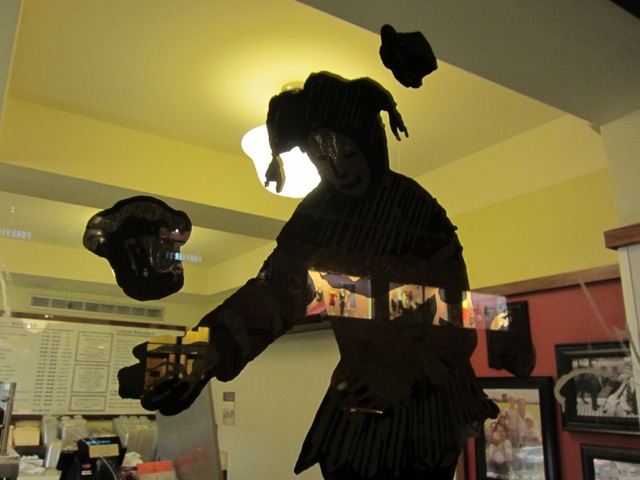
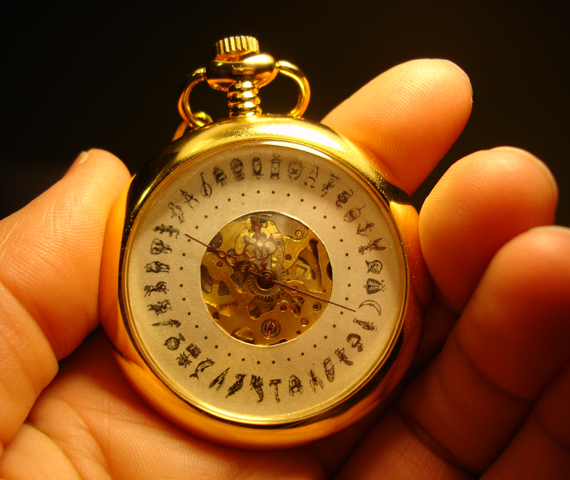
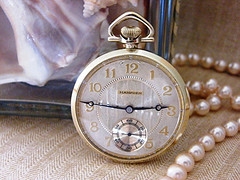
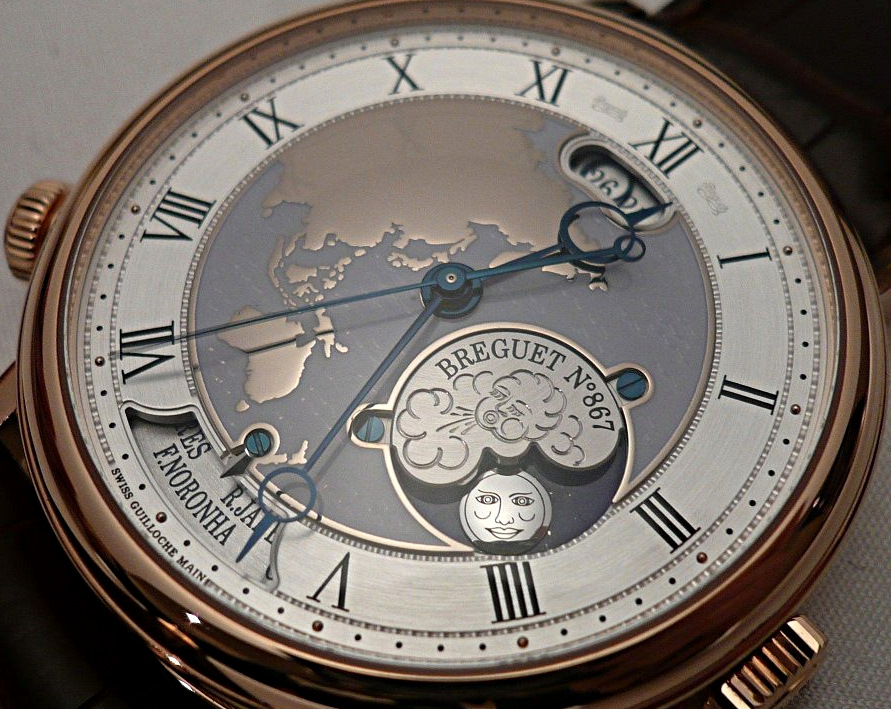
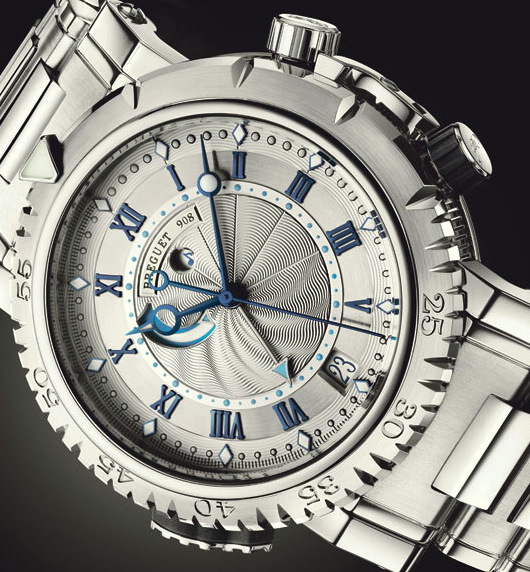



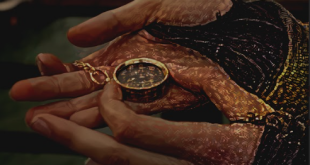
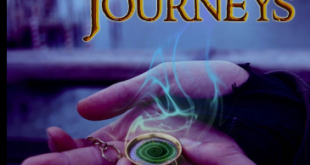

very interesting and helpful, and I though I was the only one who did these things
Jonathan, my friend in australia just sent me your website and I appreciate reading about ZiJ and see that there is much more to delve into. This is great.thank you so much.
I require time to slow down so that my brain can catch up with all your content. Can you manage that for me somehow?
LOL
<3